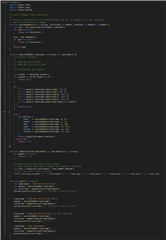I am learning how to code my first app. It's a watch face that shows tide times. I have reached a point where I can get the tide data back from a website but it's in UTC.
I would like to display it on my watch face in local time. Where I live is 10 hours ahead of UTC, so I could just add 10 hours to the UTC time, but then it will be wrong when daylight savings arrives, or if I move to a different location.
Can somebody please tell me if there is a way in monkey c to convert the UTC data that I get back into local time (also allowing for daylight savings time)?



